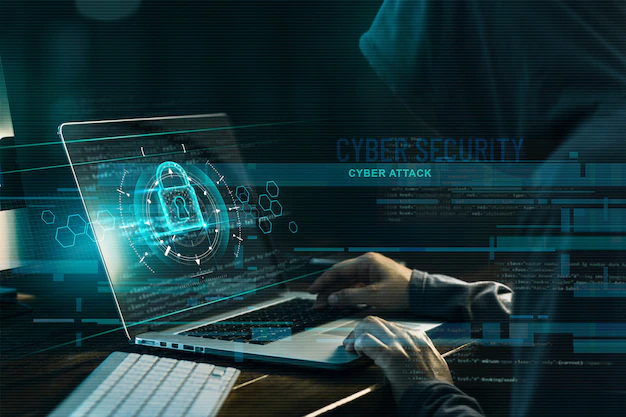During the initial days, the term ‘hacker’ was used to describe experts who could re-develop mainframe systems so as to increase their efficiency and enable them to perform multiple tasks. Fast forward to now, this term is used to refer to skilled programmers with malicious intent who can gain unauthorised access to our computer systems.
Reports estimate that as many as 30,000 websites are hacked on a daily basis globally. The primary motive of such hackers is either financial gain or to steal valuable information. However, that being said, not all hacking is bad. Just like the two sides of a coin, there are also two sides to hacking, unethical and ethical.
But what exactly does ethical hacking mean?
Let’s find out.
What Is Ethical Hacking?
Ethical hacking, also known as white hat hacking, refers to the practice of legally and ethically assessing the security of computer systems and software applications. It helps to detect any form of vulnerabilities or issues that might exist within a network. It is always done with the permission of the owner of the computer system or network in an ethical manner. Unlike unethical hacking, ethical hacking is planned, approved, and follows all legal guidelines.
Ethical hacking is done for multiple reasons. It helps organisations not only strengthen their defence systems but also safeguard their sensitive data and network from the clutches of unethical hackers. Furthermore, ethical hacking also plays a crucial role in compliance and regulation purposes. For example, there are certain industries, such as the health industry or the finance sector, that need to adhere to specific security standards. With the help of ethical hacking, they can quite easily identify any potential gap and take the necessary course of action to rectify the same.
Another example of ethical hacking includes its use for risk mitigation purposes. By effectively identifying and addressing security weaknesses, ethical hacking provides the much-required aid to organisations in mitigating the risks associated with cyber security. It enables them to strengthen all their security measures, implement necessary fixes, and improve their overall security barrier.
Ethical Hacker’s Code Of Conduct
The code of conduct or ethics of ethical hacking usually revolves around the duties and responsibilities of an ethical hacker. It guides their behaviour and ensures they adhere to all the legal standards. The nature of this profession is such that there might be cases where you stumble upon any sensitive data or information of an organisation. In such cases, the code of conduct clearly lays down the rules and guidelines about how to handle that confidential information.
Please note that based on the organisation, or certification, the code of conduct might vary slightly. Nonetheless, there are certain principles that every ethical hacker needs to abide by. Wondering what those are? Let’s find out.
- Before performing any operations, it is very important to have a clear understanding of the nature of the organisation’s business and system. It will make the handling of sensitive data and information much easier.
- It is very crucial to maintain a clear flow of communication with the client. Any information that you might stumble upon during hacking must be shared with the client in a precise and clear manner.
- Always stick to the guidelines and the limits set by the client. While performing ethical hacking, it can be quite easy for you to navigate areas that are not specified within the agreement. Do not misuse your technical skills, and minimise the exposure of sensitive information as much as possible. This, in turn, will help to build trust and reliability with your client.
- As an ethical hacker, you must maintain a high level of integrity at work. This means that you should not manipulate, delete, or disrupt data beyond what is necessary.
- Ensuring the protection of your client should be a top priority for every ethical hacker. This means that you can never disclose any sensitive information about the organisation to other parties.
Adhering to a code of conduct helps to ensure that ethical hackers approach their work with the utmost professionalism and integrity. The line between ethical hacking and unethical hacking tends to be quite thin and should not be crossed under any circumstances.
As an ethical hacker, you must always respect the rights and privacy of others. It not only helps to maintain a bond of trust between you and the organisation you are working with but also promotes responsible and ethical practices in the field of cybersecurity.
Conclusion
While ethical hacking undoubtedly seems like an exciting profession, in order to be successful in this field, you need quite an extensive skillset. This not just includes conforming to the above-mentioned code of conduct but also a diverse set of qualities and knowledge. Such include a thorough understanding of networking concepts and protocols, proficiency in various networking systems such as Linux and Windows, and an in-depth knowledge of programming languages such as Python, PHP, and JavaScript, as well.
To achieve all these skills and knowledge, there are multiple courses available online that you can check out. One such includes an E-Degree in Cybersecurity brought to you by Eduonix! This course will help you prepare for job roles such as Incident Handler, Cybersecurity Analyst, and Penetration Tester, among others. Some of the many topics included in this program are fundamentals of information security, penetration testing, extracting leaked credentials, the latest cryptographic concepts, and principles of networking, among others.



